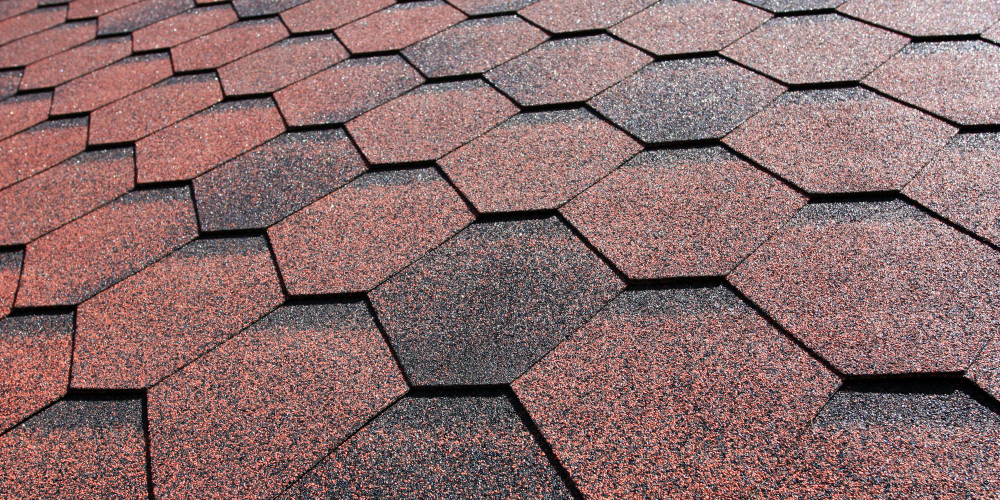With its warm, sunny weather and diverse attractions, Florida is a beautiful place to live. However, its subtropical climate brings unique challenges for roof durability. Climate factors, including high humidity, storms and intense sun exposure shorten the roof lifespan in Florida.
How long does a shingle roof in Florida last for depends on more factors and understanding them is essential for homeowners seeking protection for their property.
Exploring influencing factors, maintenance tips and signs that the time has come for roof replacement can save you money in the long run.
Factors Affecting Shingle Roof Longevity in Florida
To anticipate how long does a roof last in Florida you’ll have to focus on climate factors, as your roof will be exposed to different weather, from mild to extreme, during hurricane season.
Climate and Weather
Extreme weather causes shingles to degrade sooner. The most important factors are:
- Heat – High temperatures accelerate the aging of roofing shingles
- Heavy rain – Moisture causes shingles to swell and warp; when roofs are already damaged, moisture can cause mold, rotting and severe structural damage, which can often go unnoticed
- Hurricanes – Winds cause shingle loss, punctures, roof failure; with excessive rain, the damage is more severe
Sun Exposure
UV rays are a notable degrading factor of your shingles. Prolonged exposure to UV rays causes chemical bonds within shingles to crack, so shingles lose their structural integrity and their protective features.
Color can fade, which is an aesthetic problem. A more severe issue that can happen with prolonged sun exposure is granule loss. When you don’t react on time, granule loss causes underlying material to become vulnerable and damage your roof further.
Moisture and Humidity
High humidity and frequent rain kickoff issues that often go undetected until the damage becomes extensive. When rainwater penetrates the roofing system, it causes mold and mildew development, further harming the roofing system, especially if the ventilation isn’t adequate.
A weakened roofing system traps water and contributes to leaks, so your interior space can quickly become compromised.
Storms and Hurricanes
Lastly, how long should a shingle roof last in Florida depending on the weather forecast for hurricanes and frequent storms. In addition, the climate has changed, so the storms have become more frequent and destructive than decades ago.
Therefore, anticipating the average lifespan of an asphalt roof in Florida should include the trends in climate changes.
Wind damage can cause issues with roofing material, including:
- Shingle loss
- Roof holes caused by flying debris
- Structural and flashing damage
- Granule loss
Types of Shingles and Their Lifespan in Florida
Generally, shingles last shorter in Florida than in other regions. However, there are slight differences in the lifespan of different types of shingles.
- Asphalt Shingles
Asphalt shingles are the most common choice for homeowners in Florida.
On average, you can expect your asphalt roof shingles to last between 15 and 20 years. In cooler climates with less rainfall and fewer storms, asphalt shingles can last over 30 years.
- Architectural Shingles
With their thicker structure and more intricate detailing, architectural shingles last longer than standard ones. Their average lifespan in Florida is between 20 and 30 years.
These shingles cost more than standard ones but manufacturers also offer extended warranties to give homeowners living in extreme weather peace of mind.
- Impact-Resistant Shingles
Impact-resistant shingles are designed specifically to stay intact in case of extreme weather conditions, like the one you can expect in Florida. Because impact-resistant shingles are made with a reinforced underlayment and have a thick top layer, they can last around 30 years or more.
Other than enhanced durability, impact-resistant shingles are superior against hail and debris. In Florida, you can get insurance discounts for installing impact-resistant shingles.
However, keep in mind that these shingles require specialized installation to ensure their features, especially under extreme weather conditions.
Signs That It’s Time to Replace Your Shingle Roof
Sometimes asphalt shingle roof lifespan in Florida is shorter than expected. Destructive hurricanes or improper roof installation cuts the time between two roof repairs. Updating your roof should become your top priority if you notice any of the following signs.
Curling and Buckling Shingles
Distorted shingles are safety hazards and aesthetic issues that lower the value of your home. Exposure to heat, moisture, and unfiltered sunlight leads to premature aging of your shingles.
When the shingles become brittle and lose elasticity, it is time for the replacement.
Granule Loss
The common signs of granule loss are visible in your gutters or as bare patches on your roof surface. Generally, granule loss is a problem, because your roof becomes more vulnerable to outer elements. In addition, without enough granules, water can penetrate the roof more easily.
Lastly, granule loss is an aesthetic issue, and it makes your roof look uneven. Excessive granule loss is your sign to schedule a roof inspection to evaluate the situation and determine future steps.
Leaks and Water Damage
Is there a leakage in your roof or you’ve just noticed a new water stain on the ceiling? It is a safe sign that your shingle roof lifespan in Florida is shortened. A musty smell or visible mold is another sign of water damage caused by a failing roof.
Sagging Roof Deck
Heavy rainfalls in Florida and destructive hurricanes are common culprits for sagging roof decks, which require urgent attention to prevent damage from spreading.
Maintenance and Care Tips to Extend Roof Lifespan
You can increase the lifespan of a shingle roof in Florida by taking good care of your roof and doing what you can to prevent water damage. Incorporate the following practical tips to protect your roof.
- Regular Inspections
Missing shingles and bare patches caused by granule loos are easily noticeable. But, your roof may hide issues only visible to roof technicians. Therefore, schedule regular roof inspections at least once a year, or after heavy storms and hurricanes. That way, you’ll repair the damage on time.
- Cleaning and Debris Removal
Keep the roof clear of debris and dirt, as it can trap moisture. Moisture buildup under branches and leaves increases the risk of mold, rotting, granule loss, and structural damage.
- Gutter Maintenance
In Florida, you should clean your gutters thoroughly at least twice a year, in spring and fall. If the season is particularly windy and wet, you may consider more frequent gutter cleaning to ensure proper drainage.
Clogged gutters can cause roof and foundation issues, become a pest infestation area, or create a breeding ground for mold.
- Moss and Algae Prevention
Florida has a humid climate, ideal for algae and moss development. You should keep your roof clean to remove organic matter and lower the chance of algae growth. Also, consider applying commercial algae products or installing zinc strips to prevent moss and algae from damaging your roof.
- Roof Ventilation
Roof ventilation is one of the biggest factors that can contribute, positively or negatively, to the lifespan of your roof. Ventilation prevents heat and moisture buildup and keeps the roofing system in good condition for years. Roof vents, attic fans, gable vents, or ridge vents are ways to ensure ventilation.
Conclusion
How long does a shingle roof last in Florida troubles many homeowners, especially those facing climate changes and more frequent and destructive weather in the region. The typical lifespan is around 20 years, which can be increased with good maintenance, proper installation, and the choice of more expensive and resilient shingles.
However, regular roof inspections and repairs on time, as part of ongoing maintenance can help you keep the roof protective for years.
FAQ
Should I inspect the roof myself or sign up for regular roof inspections in Florida?
If you have no roofing experience and poor equipment, a professional roof inspection is a better idea to ensure a comprehensive evaluation. In addition, professionals may offer guidance on how to treat problems and detect even the slightest issues, treating them before they become costly repairs in the future. Professional inspections increase shingle roof lifespan in Florida.
What shingles last the longest in Florida’s climate?
Specialized impact-resistant asphalt shingles may perform the best under Florida’s extreme weather, including heavy rains, strong winds, and extreme heat.
Can you replace only the damaged parts of the roof?
In theory, yes. But, only a roofing professional can analyze the scope of work needed to keep your roof in solid condition.
How to protect my roof in Florida from extensive UV rays?
You can plant tall trees to ensure shadow or apply UV protective coatings on the roof to prevent the UV rays from penetrating and warping shingles and shortening the roof lifespan in Florida.






